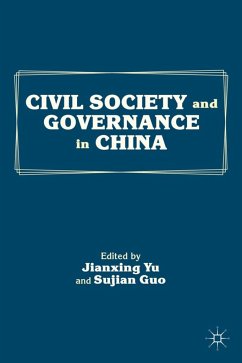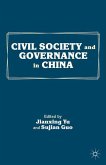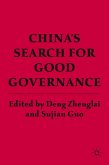Written by scholars from both inside and outside China, this wide-ranging collection of essays explores the complexity of the relationship between governance and civil society by combining theoretical exploration and empirical case studies based on the governance practice in China.
"State-society relations have changed in important ways in recent years, and various sorts of non-governmental organizations (NGOs) are emerging. Do these NGOs mean that 'civil society' is developing? What does 'civil society' mean in the context of China? Are these new NGOs improving governance in China? What do they mean for the future development of state-society relations? Jianxing Yu, Sujian Guo, and their contributors explore these questions in this timely and important book."
Joseph Fewsmith, professor, International Relations and Political Science and director, Boston University Center for the Study of Asia "Scholars have long hotly debated how theoretical and conceptual understandings of civil society can apply to China. This book does not seek to come up with one single Western or Chinese answer to the problem, but rather attempts to understand how the interaction of state and society solves important problems of public policy and public goods provision in China. By looking at the intersection of governance and social participation, the authors provide valuable insights into state-society relations in a changing institutional environment."
Gunter Schubert, professor and chair, Greater China Studies, University of Tübingen
Joseph Fewsmith, professor, International Relations and Political Science and director, Boston University Center for the Study of Asia "Scholars have long hotly debated how theoretical and conceptual understandings of civil society can apply to China. This book does not seek to come up with one single Western or Chinese answer to the problem, but rather attempts to understand how the interaction of state and society solves important problems of public policy and public goods provision in China. By looking at the intersection of governance and social participation, the authors provide valuable insights into state-society relations in a changing institutional environment."
Gunter Schubert, professor and chair, Greater China Studies, University of Tübingen








